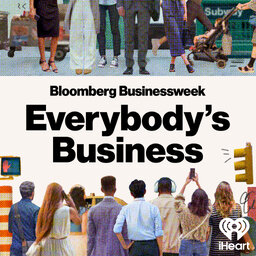Britain vs. Brexit
When British voters decided back in June 2016 to end their 43-year membership in the European Union, it seemed the most surreal political and economic event imaginable. The European Union was a statement of purpose as much as a trade relationship: It symbolized European countries putting centuries of hostility and two world wars behind in the interest of economic cooperation, and it represented European countries recognizing they had a more muscular global trade profile competing together rather than separately against powerhouses like the US. Brexit turned that on its head. It revealed the Tory Party as captive to its far right constituency, and put issues like immigration, regulation, globalization, and the identities of both Europe and the UK up for grabs. Joining Crash Course is Adrian Wooldridge, a Bloomberg Opinion columnist and an erudite, contrarian, and delightful observer of political economy and England.
 Crash Course
Crash Course


